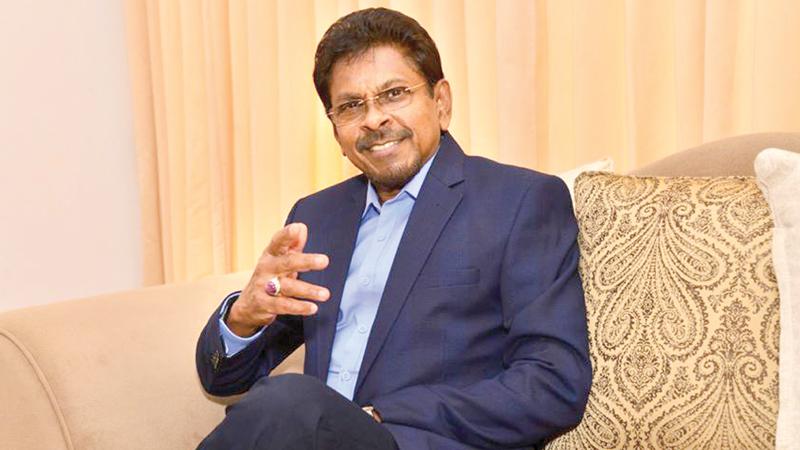
Sri Lanka wouldn’t have remained a developing country for over seven decades since Independence had the country adequate entrepreneurs to steer the economy to excellence, said a well-known entrepreneur reminiscing the missed opportunities for economic prosperity.KIK Group Chairman Lalith Kahatapitiya said entrepreneurship is the astuteness and skill in an entrepreneur to spot opportunities, needs and come up with innovative solutions which add value to society.
“Had we had this entrepreneurship we would not have remained a developing country for so long,” he said.
He said government policies play a huge role in creating an atmosphere where entrepreneurship will emerge from the society.
There’s time for them to develop the business and face competition before the market reopens for global players.
“On the other hand, if a government does not encourage local entrepreneurship and relies on foreign products and services, you cannot expect much from local entrepreneurs,” Kahatapitiya said, adding that some economists who believe in a consumer centric economy argue that government policies need to facilitate lowest prices to consumers, thus encouraging cheap imports instead of local products.For example, if a local product costs Rs. 1,000 and an imported product can be given to consumers at Rs. 900, they encourage people to go for the Rs. 900 imported product forgetting that the local product retains the Rs. 1,000 within the country whereas the imported product makes the country poorer by Rs. 900 as the entire amount needs to be sent out of the country for that import. “I strongly believe all government policies need to be focused on facilitating and developing local entrepreneurship for all types of production and services.
“You cannot expect plants to grow on unfertile soil.
“Whenever the soil is fertile, you can see all types of vegetation popping up effortlessly. Similarly, if a conducive background for entrepreneurship is set through government policies, entrepreneurship will start emerging from the people.
“Lack of opportunities for higher education facilities has resulted in the country losing top students and talented youth who are being grabbed by other countries for employment. This is a serious condition which needs immediate attention of the government.“If we are to develop our economy and come out with innovative solutions for economic development, the best of brains need to be retained in the country.
“Consecutive governments had believed that foreign employment is a good way of bringing foreign exchange into the country. But they have failed to realise the value of our own human resources.
“Due to this we have become a nation supplying labour to other countries.
“A very simple calculation of the contribution made to the GRP of this country by per person working abroad versus a person employed in Sri Lanka, it becomes clear that a person employed in Sri Lanka contributes nearly three times that of a migrant worker.
It is up to the economists and the government to do the arithmetic and find these figures out and correct our policies accordingly.
It is sad to see Sri Lanka becoming a manual labour producing country to develop foreign countries. Instead, shouldn’t we be producing much value-added products and services from Sri Lanka, using our own human resources? All governments so far have only seen the substantial foreign remittances flowing into the country year after year from migrant workers, but failed to do their arithmetic to find out how much they would have contributed to our GDP, if they were employed within the country. Subsequent governments had succumbed to pressure from other countries to give into signing trade agreements without a comprehensive study on the long-term effects of the agreements. While these agreements have failed to benefit the country they have also destroyed many local enterprises and industries. Hence a well-structured trade policy should be developed before getting into any foreign trade or service agreements.
“We need to be vigilant over forces acting to destabilise the country and hinder economic development. There can be many external forces igniting racial disharmony as geopolitical strategies.
These should never be neglected, and lessons need to be learnt from all such incidents that happened in the past,” Kahatapitiya said.
